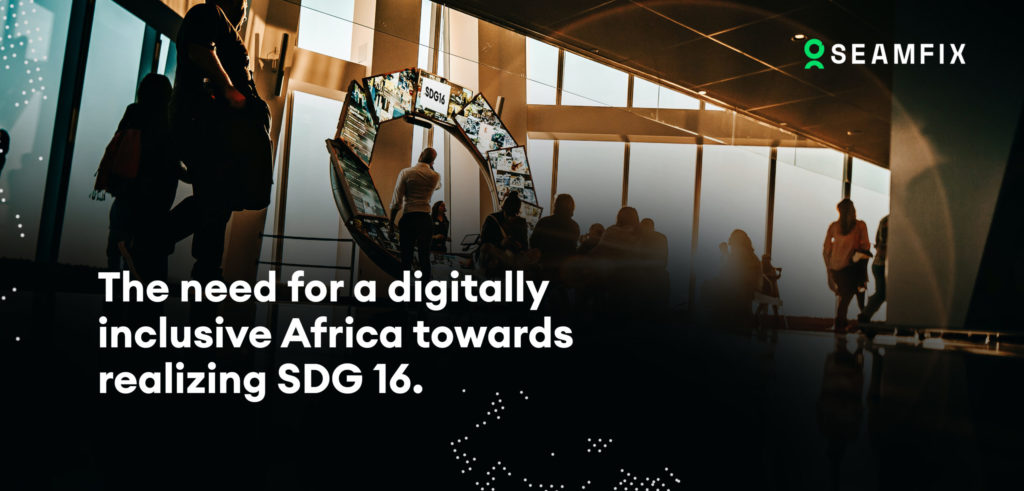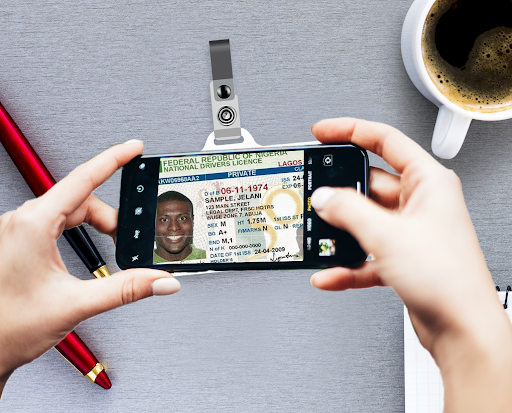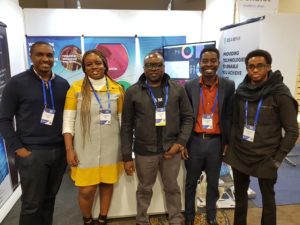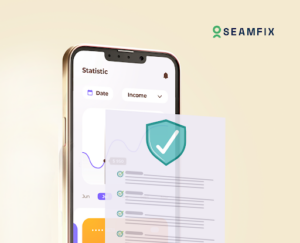Picture this. Two nineteen-year-olds in Africa, Joshua and Tariq were born on the same day in the same hospital by different parents.
Joshua has a national passport, while Tariq, unable to afford the costs, is in possession of a tattered ‘date of birth’ record written in a rush by a tired nurse.
Same country, same age – different identities. How will this play out in their individual realities?
When it’s time to register at a polling unit for upcoming elections, Joshua is easily enrolled into the system – ready to have his say on the future of his family and country.
Tariq on the other hand encounters problem after problem as he doesn’t have an accepted legal document that the enrollment agency can use to certify his citizenship.
Disenfranchisement occurs at the basic level of a fundamental human right.
Or should we discuss access to banking services, government benefits or the right to a proper healthcare system?
Hard as Tariq may try, so long as he’s unable to afford to enrol for a legal document, he will forever be at a disadvantage to his peers, simply because of a fault not of his own making that’s plagued African countries for decades.
Little wonder the United Nations’ Sustainable Development Goal 16.9 calls for a legal identity for all people worldwide, including birth registration, by 2030.
Why is this legal identity so important for everyone and how does a government agency realise this goal in the presence of innumerable inadequacies?
The Elephant in the Room: Africa’s Invisible Millions
One billion people in the world today do not have a secure legal identity. Half of that population is in Africa.
This problem eats at the root of national and individual development. How can you grow if you don’t have access to fundamental and equal opportunities?
How can a government plan beneficial policies and implement the right systems for a people they cannot officially recognise as their own outside their skin colour and accent?
A legal identity record is a gateway to social and economic inclusion, enabling access to essential services such as healthcare, education, financial aid, and the right to vote and travel.
Its need cannot be over-emphasized.
Without this legal record, marginalisation is the common man’s problem. You can forget about exercising any civil and political rights or securing socio-economic benefits from the state.
Every African nation would benefit from having one that can be used across all parastatals but as we’ve researched, it’s incredibly difficult to implement at scale.
Why? A multitude of combined factors peculiar to the African terrain.
From high monetary costs to poor infrastructure to perhaps the biggest – a central birth registration system, strong enough to prove an individual’s identity.
You cannot imagine how immensely complex it is to provide proof of a birth certificate record in a context where neither parent has an existing identity document, nor the legal records of marriage, divorce, death, adoption, change of name, or residence, that may be required
It’s much easier to track and assign an identity from birth than to enrol an adult without any suitable background portfolio.
Administrative hurdles and limited awareness are also big hurdles to climb.
It’s not all dark and gloomy though as based on the Digital Transformation Strategy (DTS) for Africa (2020-2030), the African Union Commission (AUC) is developing a digital ID policy framework for the continent.
This effort highlights both the social and economic potential of digital IDs for Africans.
There’s work to be done and it looks like there’s never been a better time to do it.
The way forward: Using Technology to Achieve Inclusion
As of 2017, based on “The State of Identification Systems in Africa report,” the World Bank identified that 34 of Africa’s 48 countries relied on conventional paper-based civil registration systems to provide identities for their citizens.
Thankfully that number has dwindled in recent years, as African governments make giant strides in establishing or improving national identification systems.
Countries like Ghana, Kenya, Lesotho, Mozambique, Ivory Coast and Nigeria, have fully or partially implemented foundational ID systems.
In Ghana alone, about 15,663,585 Ghanaians are registered with the NIA (National identification authority) as of 2021, as opposed to just about 4.5 million in 2017.
The figures are more staggering in Nigeria with about 82.73 million citizens enrolled with NIMC (National Identity Management Commission) as of May 26, 2022.
By what means did they make this possible?
It’s not luck, it’s technology. And the game-changer is the use and application of mobile technology in particular.
With support from initiatives such as the World Bank’s ‘ID4D program’ and Plan International’s ‘Count Every Child initiative’, African countries have been able to adequately carry out elaborate inclusion schemes, employing handheld devices like mobile phones that are not limited by internet connectivity or technological expertise.
It works so well because smartphone penetration has taken the continent by storm with current use from 50 per cent projected to rise to 64 per cent by 2025.
With its relatively low costs compared to traditional methods, ease of use and popularity, mobile technology has become vital in facilitating the creation of digital-ID ecosystems.
For example In Nigeria and Tanzania, authorities license mobile network operators (MNOs) to act as official ID enrolment partners, effectively leveraging their nationwide presence to accelerate citizen enrolment.
Nigeria’s foremost ID agency NIMC worked with Seamfix to develop an Android Enrolment mobile application with capabilities to acquire both textual and biometric data while maintaining an international standard of biometric quality.
This solution successfully powered NIMC’s Ecosystem drive, allowing NIMC agents to cover the majority of Nigerians previously hindered by location, space and time.
This technology adoption has also helped agencies to introduce biometric databases, with minimal biographical information, providing a way for previously marginalised groups of people to exercise their civil rights and enjoy public services.
At the recently concluded ID4Africa Livecast, Ivory Coast’s Sitionni Gnénin Kafana, director general of the national civil status registration and identification office (ONECI), spoke about the country’s digital ID project – a new biometrics-based national ID card system.
This ID now enables citizens to have access to certain public services such as social insurance, healthcare, financial and banking services, issuance of a passport and so on.
Rwanda on the other hand has implemented a central childbirth civil registry with the current situation at 84.2 per cent and the country hopes for 100 per cent birth registration coverage by the end of the year.
Truly, we’re in a time of digital transformation and as more governments take calculated risks, we will see the once gloomy digital identity statistic turn into a continental success story.
Inclusion, Empowerment, Protection
So as world identity day approaches, an initiative built on three tents of inclusion, empowerment and protection – African governments can position themselves to build prosperous nations by leveraging mobile technologies
Seamfix is proud to be a pioneer supporter of building mobile enrollment tools across the continent.
From our work with Nigeria’s enrollment agency NIMC (enrolling 80 million people using android devices) to carrying out over 300,000 identity verifications in four countries using Verified.africa, we have the practical expertise to help agencies and parastatals in Africa to realise the all-important SDG 16.9 goal.
An inclusive world for every citizen that fosters equal rights to equal opportunities awaits.











